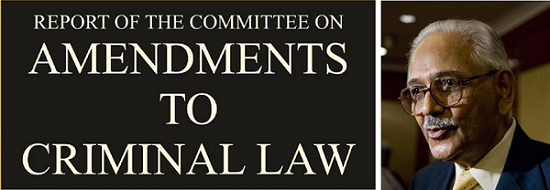Oct 17, 2025
Oct 17, 2025

24-Jan-2013
More by : Dr. Gopal Singh

|
Dear D K Bohre, the modern raj Panchayat, introduced under British Rule, is a democratic body – note the description; if you go back in history, as you do, the khap panchayat was caste based, therefore not democratic in the modern sense of the word. It's true, even Greek democracy was restricted to male citizens, excluding slaves and women; but the idea was later idealised to include all individuals in modern society. It is one thing to have the vote for each person in a democracy, but as the article is at pains to show, democratic values are still overshadowed by traditional prejudices particularly those of a sexist nature; and by the grand malaise of apathy in government, failure to implement reforms to effect democratic change. The columns of Boloji bear witness to this, and it is what Dr Singh bemoans as putting 'another nail in the coffin of our democracy' To the new democracies of the ex-Soviet Union: they too, like India, may have an 'impeccable constitution and democratic government’ but do they have ‘strength and courage to implement it'? applying Myrdal’s words in the article. It is a perpetual learning curve for an elected democratic government, not merely 65 or 100 years from now; it is the courage of an Angela Merckell to make decisions to bail out failing economies in the European Union; it is David Cameron’s measures to hit erstwhile tax-dodgers or undeserving benefit claimants judged by democratic standards of fairness. Democracy is a dynamic, never an arrived at state; or else it slumps into apathy in the face of fresh demands for action, which is the sorry state of India’s democracy by all accounts. It would be rude not to respond to your final one-liner regarding 'the scale of a religious conversion' (is what I said) meaning widespread. |

|
Dear RDASHBY, I am sorry, your understanding is misplaced. Indians have been dealing with democratic system since much before Greeks, for thousands of years. Most of our population resided (and still resides) in self-sufficient villages, where governing body 'panchayat' is elected by people. You can search google and find out simple and very effective rules that were followed on candidature of people contesting elections some one thousand years ago - there are research articles available. And to burst another conclusion that 65 years are too less for a democratic system to evolve - what about the new European nations that appeared from ashes of former Communist republic - the Soviet. Going by your logic, they are still maturing in democracy and will keep maturing for another 100 years !! And one could not understand what is ment by 'religious conversion' in your comments. |

|
In India, the workings of democracy are manifested in the outcome after over 65 years of it. The 'coffin of our democracy' is the coffin of the ideal. One must bear in mind that democracy is a Greek idea, alien to Indian tradition, the latter's whose compulsive tendencies are high-lighted in a democratic context as corrupt practice, necessitating a conversion of modern India on the scale of a religious conversion to a totally democratic frame of mind, which 65 years later proves early days to expect. |